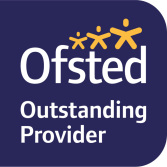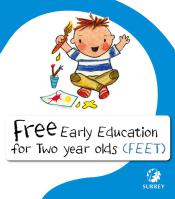
The Early Years Foundation Stage
As an Ofsted registered Childminder in England I follow a legal document called the Early Years Foundation Stage (EYFS). This describes your child’s development up to the age of 5. So nurseries and reception classes at infant schools will also follow this legal document.
Four guiding principles should shape practice in early years. These are:-
1. Every child is a unique child,
2. Children learn to be strong and independent through positive relationships.
3. Children learn and develop well in enabling environments with teaching and support from adults, who respond to their individual interests and needs and help them to build their learning over time.
4. Importance of learning and development
The EYFS tells us :-
1. The importance of learning and development
There are 7 areas of learning outlined in the EYFS and children should mostly develop the 3 prime areas first which are those most essential for your child’s healthy development and future learning. These are:
- Communication and language
- Physical development; and
- Personal, social and emotional development.
The prime areas will help children to develop skills in 4 specific areas which are:
- Literacy;
- Mathematics;
- Understanding the world; and
- Expressive arts and design.
Children in the EYFS learn by playing and exploring, being active, and through creative and critical thinking which takes place both indoors and outside and so we plan and let children choose activities at our setting which cover all of these 7 areas of learning.
2. Assessments
Parents sign permission slips for me to observe and make assessments on children’s development. I use these to draw up individual plans and summaries which include things that you can do at home. With your permission I also share these with nurseries that your children attend so that we can all work together. Children generally follow a set pattern of development; however, they may not all pass through at the same rate and by doing these observations and sharing the information with you as the parent and with the nursery or reception class any problems can be picked up and dealt with. Likewise children who are excelling can have their learning extended further.
Formative assessments are ongoing and I draw information from our own knowledge, training that I undertake and knowledge of each child and their family. As well as our planned termly curriculum I also plan in the moment by undertstanding each child's interests, knowing what they can do and what they should be doing as a next step and then shaping teaching and learning experiences to suit
When a child is aged between two and three, childminders must review their progress, and provide parents and/or carers with a short, written summary of their child’s development in the prime areas. This is called the Two Year Check. This plan involves parents and carers and other professionals (for example, the child’s health visitor) as appropriate.
3. Safeguarding and welfare requirements
This includes keeping our surroundings and equipment safe, administering medicines, providing healthy meals and snacks, ongoing training like 1st aid, safeguarding and food hygiene, how many children I can look after, managing children’s behaviour, recording accidents, sharing information with parents/carers, confidentiality, equal opportunities, complaints, child protection issues and risk assessments on outings with the children. It emphasises keeping children healthy, safe and secure so that they can enjoy learning and grow in confidence.

